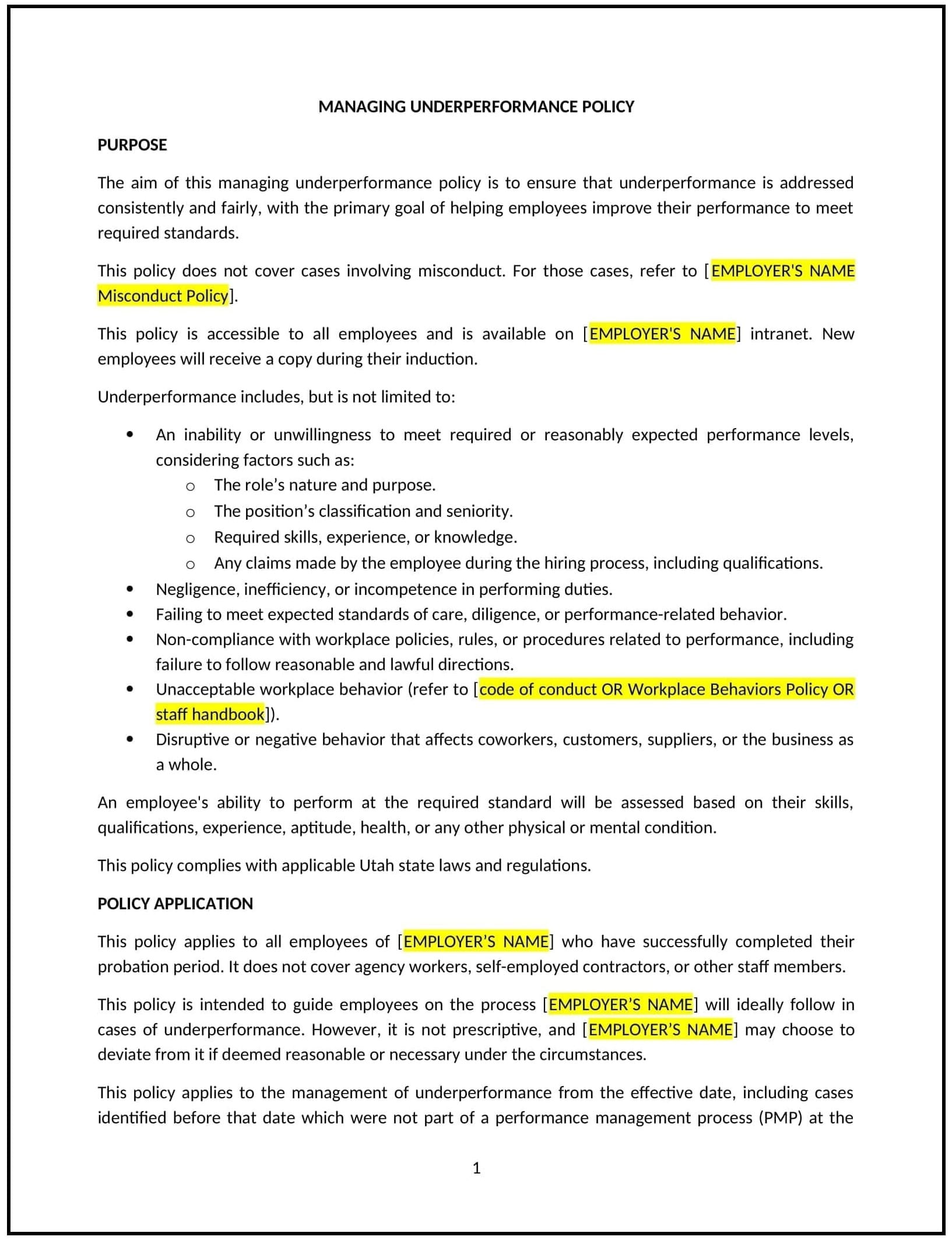Managing underperformance policy (Utah): Free template
Got contracts to review? While you're here for policies, let Cobrief make contract review effortless—start your free review now.

Customize this template for free
Managing underperformance policy (Utah)
This managing underperformance policy is designed to help Utah businesses address employee performance issues effectively and fairly. It outlines procedures for identifying, documenting, and resolving underperformance while providing employees with opportunities for improvement.
By adopting this policy, businesses can improve productivity, maintain workplace standards, and align with general best practices for performance management.
How to use this managing underperformance policy (Utah)
- Define underperformance: Specify what constitutes underperformance, such as missed deadlines, poor quality work, or behavioral issues.
- Establish performance standards: Outline clear expectations for employee performance and behavior.
- Provide feedback: Offer regular feedback to employees, including constructive criticism and recognition of achievements.
- Document issues: Maintain records of performance discussions, improvement plans, and disciplinary actions.
- Develop improvement plans: Work with employees to create actionable plans for addressing underperformance.
- Enforce consequences: Specify disciplinary actions for unresolved underperformance, such as warnings or termination.
- Train managers: Educate supervisors on identifying and addressing underperformance effectively and fairly.
- Review and update: Assess the policy annually to ensure it aligns with evolving business needs and performance standards.
Benefits of using this managing underperformance policy (Utah)
This policy offers several advantages for Utah businesses:
- Improves productivity: Addresses underperformance promptly, ensuring employees meet workplace standards.
- Maintains fairness: Provides clear procedures for addressing underperformance, reducing the risk of bias or discrimination.
- Supports employee development: Offers employees opportunities to improve through feedback and improvement plans.
- Aligns with best practices: Provides a structured approach to managing underperformance.
- Reduces legal risks: Minimizes the potential for lawsuits related to unfair disciplinary actions or terminations.
Tips for using this managing underperformance policy (Utah)
- Communicate the policy: Share the policy with employees and include it in the employee handbook.
- Provide training: Educate managers on identifying and addressing underperformance effectively and fairly.
- Monitor compliance: Regularly review performance management practices to ensure adherence to the policy.
- Address issues promptly: Take corrective action if underperformance is not addressed or resolved.
- Update regularly: Assess the policy annually to ensure it aligns with evolving business needs and performance standards.